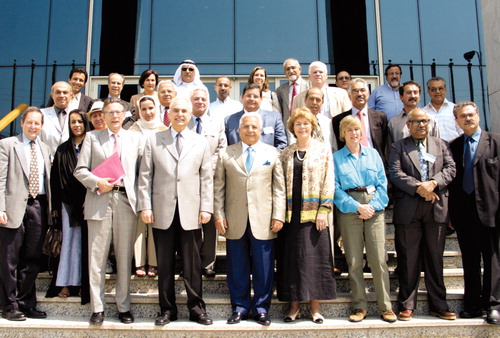Rehabilitating Iraq: MH Priorities

Seated around the conference table were experts from Afghanistan, Bahrain, Egypt, India, Islamic Republic of Iran, Iraq, Lebanon, Morocco, Pakistan, Saudi Arabia, Switzerland, Tunisia, United Kingdom, and the United States. The participants were informed and knowledgeable psychiatric leaders in their countries.
What were we all doing there? Where does mental health fit into the hierarchy of survival needs of an occupied country with a massively damaged infrastructure?
In Iraq, a nation the size of California beset by low-level guerrilla warfare, there are grave problems of security, economic instability with massive unemployment, power-grid failures, unsafe water, and a severely decimated health care delivery system. The pervasive looting of hospitals and health posts, down to copper wiring and pipe, has severely damaged one of the most advanced public health systems in the Arab world. While reconstruction efforts addressing this catastrophic situation proceed, mental health imperatives must also be given a high priority.
 Baghdad—the site of the world’s first psychiatric hospital (established in A.D. 753)—now, after 30 years of prolonged conflict and violence, faces an acute shortage of human and medical resources.
Baghdad—the site of the world’s first psychiatric hospital (established in A.D. 753)—now, after 30 years of prolonged conflict and violence, faces an acute shortage of human and medical resources.
There are long-term needs to increase the medical workforce, update medical training, and develop outreach to families and communities in urban and rural areas. A small measure of the breadth of the human problems was seen in Baghdad when 800 acute and chronic psychiatric patients spilled into the streets and countryside during the urban battles.
The Cairo conferees worked to outline acute goals, as well as chronic and long-term agendas. We were reminded of the special needs of countries such as Afghanistan, where 40 percent of the children in Kabul have lost their parents, two-thirds have seen dead bodies or parts of bodies, and 90 percent believed they would die during the conflict. These experiences have an immediate psychological impact, as well as a long-term effect, on mental health.
Examples of successful interventions that were developed in other Eastern Mediterranean countries were presented by representatives from India, Iran, and Pakistan. Their education programs and work integrating mental health with primary health care demonstrated positive results.
The conferees were divided up into small groups to work on the following topics: needs assessments; training and human resources development; peoples’ initiatives for mental health; service development, including integration of mental health care within primary health care; and issues of administrative support, including research, monitoring, and evaluation.
As the representative of the American Psychiatric Association I felt fortunate to spend time participating with our Eastern Mediterranean region colleagues in this joint venture to ensure that mental health was given a priority and was on the front line of any discussion about the rebuilding of Iraq. From the experiences of American psychiatrists in the developing world who have had long-term projects, we recognize the hurdles public health and psychiatry have to clear to achieve appropriate recognition from the policymakers who set priorities.
In the near term, Iraq’s security, power restoration, a revamped educational system, adequate nutrition, potable water supplies, and reconstruction of hospitals are all powerful competitors for mental health funding in the country’s rehabilitation. From psychiatric epidemiological research and empirical experience, we have data showing that violence, poverty, and disasters accelerate neuropsychiatric disorders and thus affect the DALYs (Disability Adjusted Life Years). Mental health properly requires recurrent expenditures in a national budget. Planners may tend to minimize these realities as well as the long-term impact of untreated depressive disorders on work productivity and its negative effect on a country’s gross domestic product.
At the Cairo conference, representatives of many nations with different political histories—democracies together with single-party nation states—and different racial, societal, and religious backgrounds joined together to advocate for a vision of mental health being integral to health care in general. The Cairo meeting reflected advance mental health planning in the service of children, families, communities, and the nation. This was an international effort at nation building at its best. ▪



